Reading is one part however training your brain to memorize these topics is another part. Therefore, we have brought a series of NEP 2020 MCQ questions to practice. We have provided in-depth knowledge of NEP-2020 in our previous article and strongly encourage you to go through it before attempting these MCQs.
This helps in complete understanding and strategizing our plan with sufficient questions. This topic is scoring and relevant to all aspiring candidates for those who want to pursue their dream careers as teachers in the state as well as central institutions.
Things to remember in NEP 2020 :
| NEP 2020 Highlights | |
|---|---|
| Name of the policy | National Educational Policy (NEP) 2020 |
| Organized By | Ministry of Education |
| Chairman | Dr. K. Kasturirangan |
| Launch Date | 29th July 2020 |
| No. Of Editions | [3] (1st – 1968) / (2nd – 1986) / (3rd – 2020) |
| Major Amendment | Replacement of 10+2 structure by 5+3+3+4 |
| Four Pillars of Policy | Access, Equity, Quality & Accountability |
These NEP 2020 MCQs help to memorize key highlights that otherwise may be difficult to remember. We have provided 50 subjective questions and their answers which can be practiced in leisure time to gain extra knowledge. We have offered a PDF version of these questions on our Telegram channel “pgtprime” for those who wish to download them.
If you want to learn more about the NEP 2020 and challenge yourself with some interesting questions, then take this NEP 2020 MCQ.
Practice Set Questions on NEP 2020 MCQ:
1. Under the chairmanship of whom Committee for Evolution of the New Education Policy’ submitted its report in May 2016.
- Dr. K. Kasturirangan
- Vijay Kelkar
- Late Shri T.S.R. Subramaniam
- Ashok Mehta
Answer NEP 2020 MCQ
3. Late Shri T.S.R. Subramaniam
2. NEP 2020 stated to establish a National Repository of high-quality resources on foundational literacy and numeracy on Government Digital Platforms. What is the name of the Government’s Digital Platform?
- NCERT
- DIKSHA
- DISHA
- NISHTHA
Answer NEP 2020 MCQ
2. DIKSHA
3. In NEP 2020, a ___________regulatory framework to ensure integrity, transparency, and resource efficiency of the educational system through audit and public disclosure while encouraging innovation and out-of-the-box ideas through autonomy and good governance.
- Flexibility restraint
- Lenient but tight
- Light but tight
- Light but restraint
Answer NEP 2020 MCQ
3. Light but tight
4. Which are Not the Fundamental Principles of NEP 2020?
- Substantial investment in a strong, vibrant public education system as well as the encouragement and facilitation of true philanthropic private and community participation.
- Promoting bilingualism and the power of language in teaching and learning
- Extensive use of technology in teaching and learning, removing language barriers, increasing access for Divyang students
- Synergy in curriculum across school levels of education from early childhood care and education (ECCE) to school education to higher education
Answer NEP 2020 MCQ
2. Promoting bilingualism and the power of language in teaching and learning
5. Which of the following reforms was included in NEP 2020?
- Equal and Inclusive education
- Ensuring universal access at all levels
- New Curriculum and Pedagogical Structure
- All of the above
Answer NEP 2020 MCQ
4. All of the above
6. As per NEP 2020, the school education curriculum is divided into the following pedagogical stages :
- Middle Stages
- Preparatory Stage
- Elementary Stage
- Foundational Stage
- Secondary Stage
- Senior Secondary Stage
- a, b, d, e
- a, c, d, e
- c, d, e, f
- e, f, b, a
Answer NEP 2020 MCQ
1. a, b, d, e
7. The global education development agenda reflected in the goal 4(SDG4) of the 2030 agenda for sustainable development, adopted by India in:
- 2015
- 2014
- 2016
- 2017
Answer NEP 2020 MCQ
1. 2015
8. The (SDG4) sustainable development goal, adopted by India in 2015-seeks to ensure:
- Inclusive education
- Quality education
- Equitable & lifelong learning opportunities and education
- All of the above
Answer NEP 2020 MCQ
4. All of the above
9. National Education Policy 2020 recommends:
- Multilingualism
- Monolingualism
- Standardization of curriculum
- Standardization of assessment
Answer NEP 2020 MCQ
1. Multilingualism
10. The shift proposed in National Education Policy 2020 is from:
- Standardization of flexibility
- Formative to Summative assessment
- Multidisciplinary to rigidity
- Experiential to contextual
Answer NEP 2020 MCQ
1. Standardization of flexibility
Do you find this NEP 2020 MCQ difficult, to brush up your knowledge, please refer to our previous article on NEP 2020 by clicking here 👇
11. According to the NEP 2020, by which year the Gross Enrolment Ratio in higher Education including Vocational education is to be increased to 50%?
- 2030
- 2040
- 2035
- 2045
Answer NEP 2020 MCQ
3. 2035
12. How many fundamental principles are mentioned in NEP 2020?
- 5
- 11
- 22
- 20
Answer NEP 2020 MCQ
2. 11
13. What is the age group covered in school education according to NEP 2020 new curricular structure?
- 2-14
- 3-18
- 6-18
- 6-14
Answer NEP 2020 MCQ
2. 3-18
14. What are the classes that cover at “Secondary Stage” according to NEP 2020 new curricular structure?
- Class 6 to 9
- Class 9 to 12
- Class 6 to 8
- Class 11 to 12
Answer NEP 2020 MCQ
2. Class 9 to 12
15. NEP 2020 recommends that ‘Fund’ build the nation’s capacity to provide equitable quality education for all girls as well as transgender students. What will be the name of the fund?
- Gender Employment Fund
- Gender Inclusive Fund
- Gender Promotion Fund
- Gender Education Fund
Answer NEP 2020 MCQ
2. Gender Inclusive Fund
16. At the primary level, NEP 2020 is proposed as the medium of instruction across the Nation.
- English and Hindi
- Regional language
- Sanskrit
- Mother tongue
Answer NEP 2020 MCQ
4. Mother tongue
17. National Education Policy 2020 proposes inclusion of ________and________ for assessment of children
- Group work and self-assessment
- Projects and standard tests
- standard tests and portfolios
- norm-referenced test and criterion-referenced test
Answer NEP 2020 MCQ
1. Group work and self-assessment
18. What should be the underlying principle for assessment according to NEP 2020?
- Primarily testing rote memorization skill
- Encouraging learning of content
- Optimizing learning and development for all students
- Assessing students into the cognitive domains through end-of-the-year examination.
Answer NEP 2020 MCQ
3. Optimizing learning and development for all students
19. What should the holistic 360-degree multidimensional progress card proposed in the NEP 2020 reflect?
- Comparison of the student’s performance with the marks across the state
- Progress of the learners in the cognitive, affective, and psychomotor domains
- Correct identification and labeling of the student on an eight-point grade scale as per her cognitive capabilities
- Problem areas in the student’s comprehension that the parents need to work on
Answer NEP 2020 MCQ
2. Progress of the learners in the Cognitive, Affective, and Psychomotor domains
20. Which of the following has NOT been promoted by NEP 2020 in the context of the education of students with disabilities?
- Appropriate infrastructure
- One-on-one teachers and tutors
- Compulsory special education
- Suitable technological interventions
Answer NEP 2020 MCQ
3. Compulsory special education
If NEP 2020 MCQ provides you some insights, discuss this with your friends and family! 😂
21. As per the policy public investment in education will be increased from the current 4.3% to __?
- 6.5% of GDP
- 7% of GDP
- 6% of GDP
- 5.5% of GDP
Answer NEP 2020 MCQ
3. 6% of GDP
22. Which of the following features is NOT prescribed in the NEP 2020?
- It is important to identify and foster the unique capabilities of each student
- Emphasis should be placed on conceptual understanding rather than rote learning and learning for exams
- There should be a focus on creativity and critical thinking to encourage logical decision-making and innovation
- Teachers should focus on the use of reward and punishment to promote compliance in children
Answer NEP 2020 MCQ
4. Teachers should focus on the use of rewards and punishment to promote compliance in children
23. NEP 2020 recommends the study of classical languages as_____
- A language within the three-language formula
- As a Compulsory language
- As an additional language
- As a secondary language
Answer NEP 2020 MCQ NEP 2020 MCQ
3. As an additional language
24. Which of the following Pedagogical strategies does NEP 2020 propose?
- Experiment and drill & practice
- Inquiry-based and repetition-based learning
- Lecture-based and drill-based learning
- Storytelling and discussion-based learning
Answer NEP 2020 MCQ
4. Storytelling and discussion-based learning
25. Which will be created as an apex body for fostering a strong research culture and building research capacity across higher education as per NEP 2020?
- National commission foundation
- Higher commission education
- National research foundation
- None of these
Answer NEP 2020 MCQ
3. National Research Foundation
26. The New policy aims in higher education to improve the Gross Enrollment ratio from 26.3% to 50% by?
- 2030
- 2035
- 2025
- 2040
Answer NEP 2020 MCQ
2. 2035
27. Which is Not the vision of NEP 2020?
- Envisions an education system sustainably into an equitable and vibrant knowledge society by making India a global knowledge superpower
- The policy envisages that the curriculum and pedagogy of our institutions must develop among the parents a deep sense of respect toward the Fundamental Duties and Constitutional values
- The vision of the policy is to instill among the learners a deep-rooted pride in being Indian
- This policy envisages Indian ethos that contributes directly to transforming India, that is Bharat by providing high-quality education to all
Answer NEP 2020 MCQ
2. The policy envisages that the curriculum and pedagogy of our institutions must develop among the parents a deep sense of respect toward the Fundamental Duties and Constitutional values
28. A National curricular and pedagogical framework for Early Childhood Care and Education (NCPFECCE) for children up to the age of will be developed by __.
- 6 years and NCERT
- 8 years and NCTE
- 6 years and NCTE
- 8 years and NCERT
Answer NEP 2020 MCQ
4. 8 years and NCERT
29. Sanskrit textbooks at the foundational and middle school level may be written in________ to teach __ and make its study truly enjoyable.
- Simple Standard Sanskrit (SSS), Sanskrit through Sanskrit (STS)
- Simple Standard Sanskrit (SSS), Sanskrit through Odiya (STO)
- Simple Standard Sanskrit (SSS), Sanskrit through Tamil (STT)
- Simple Standard Sanskrit (SSS), Sanskrit through Hindi (STH)
Answer NEP 2020 MCQ
1. Simple Standard Sanskrit(SSS), Sanskrit through Sanskrit(STS)
30. To ensure that outstanding students enter the teaching profession, especially from rural areas – A large number of merit-based scholarships shall be instituted across the country for studying quality ____________ integrated B.Ed programs.
- 1 Year
- 2 Year
- 3 Year
- 4 Year
Answer NEP 2020 MCQ
4. 4 years
If you liked it, motivate us by sharing this content of NEP 2020 MCQ!👍
31. Each teacher will be expected to participate in at least ___________ hours of continuous professional development. Opportunities every year for their professional development, driven by their interest.
- 25 Hours
- 45 Hours
- 50 Hours
- 40 Hours
Answer NEP 2020 MCQ
3. 50 Hours
32. The professional standards will be reviewed and revised in ______ and thereafter every ____ year, based on rigorous empirical analysis of the efficacy of the system.
- 2025, 5
- 2030, 10
- 2035, 5
- 2040, 10
Answer NEP 2020 MCQ
2. 2030, 10
33. National curriculum framework for teacher education (NCFTE) will be formulated by the________ in consultation with __, based on the principle of NEP 2020.
- NCTE, NCERT
- CBSE, NCERT
- NCTE, CBSE
- NAC, NCERT
Answer NEP 2020 MCQ
1. NCTE, NCERT
34. Which regions would be declared as Special Economic Zone (SEZ) according to NEP 2020?
- Regions of the country with large population from educationally disadvantage SEDGs
- Regions of the country with large population from educationally advantge SEDGs
- Regions of the country with large population from literate groups
- Regions of the country with large population from high income group
Answer NEP 2020 MCQ
2. Regions of the country with large population from educationally advantage SEDGs
35. While preparing the national curriculum framework, NCERT will ensure that consultation is held with expert bodies in NEP 2020, such as ______________.
- National Institutes of DEPWD
- National Institutes of RPWD
- National Institutes of Disabilities
- National Institutes of NEPWD
Answer NEP 2020 MCQ
1. National institutes of DEPWD
36. To ensure that all schools follow certain minimal professional and quality standards according to NEP 2020, states/UTs will set up an independent, state-wide, body called?
- State School Competent Authority (SSCA)
- State School Development Authority (SSDA)
- State School Standards Authority (SSSA)
- State School Vigilance Authority (SSVA)
Answer NEP 2020 MCQ
3. State School Standards Authority (SSSA)
37. Bridging the gaps in access, participation, learning outcomes, and behavioral changes in children will continue to be one of the major goals of all education sector development programs. What is the major gap identified in NEP 2020?
- The social category gaps
- The emotional category gaps
- The physical category gaps
- The cultural category gaps
Answer NEP 2020 MCQ
1. The social categories gaps
38. According to NEP 2020:
- Indian Knowledge System (IKS) will also be available to students in secondary school as an elective.
- Indian knowledge system (IKS) will also be available to students in secondary school as compulsory.
- Only (I) is true
- Only (II) is true
- Both (I) and (II) are true
- Niether (I) and (II) is true
Answer NEP 2020 MCQ
1. Only (I) is true
39. According to NEP 2020:
- NCFSC will be made available in all regional languages.
- NCFSC document shall henceforth be revisited and updated once every 5 – 10 years taking into account frontline curriculum.
- Only (I) is true
- Only (II) is true
- Both (I) and (II) are true
- Niether (I) and (II) is true
Answer NEP 2020 MCQ
3. Both (I) and (II) are true
40. In NEP 2020 Currently children in the age group of _________________ are not covered in the 10 + 2 structure as class 1 begins at the age of 6.
- 4 – 6 Years
- 3 – 6 Years
- 3 – 5 Years
- 4 – 5 Years
Answer NEP 2020 MCQ
2. 3 – 6 years
Do you know the full forms of NCERT, DIKSHA, DISHA, NISHTHA, NTA, PARAKH, UGC, and NAI.? Let us know by writing them in the comment box.
41. As per NEP 2020 the planning and implementation of early childhood care and education curriculum will be done jointly by which of the following ministries?
- HFW & HRD
- HRD & WCD
- HFW & WCD
- HFW, WCD, Tribal Affairs & HRD
Answer NEP 2020 MCQ
4. HFW, WCD, Tribal Affairs & HRD
42. What are the classes which cover at “Middle” stage according to NEP 2020 new curricular structure?
- Class 6 to 9
- Class 9 to 12
- Class 6 to 8
- Class 11 to 12
Answer NEP 2020 MCQ
3. Class 6 to 8
43. According to NEP 2020:
- Setting up of Gender Inclusion Fund for Female and Transgender Students
- Setting up of Special Education Zones (SEZs) for large populations from SEDGs
- Only (I) is true
- Only (II) is true
- Both (I) and (II) are true
- Niether (I) and (II) is true
Answer NEP 2020 MCQ
3. Both (I) and (II) are true
44. According to NEP 2020:
- Kasturba Gandhi Balika Vidyalaya will be strengthened and expanded to increase the participation in quality schools for socio economically disadvantaged backgroud girls up to grade 12.
- The Rights of Persons with Disabilities (RPWD) Act 2016 defines inclusive education as a system of education where students with and without disabilities learn together, this system of teaching and learning is adopted.
- Only (I) is true
- Only (II) is true
- Both (I) and (II) are true
- Niether (I) and (II) is true
Answer NEP 2020 MCQ
3. Both (I) and (II) are true
45. According to NEP 2020, Higher Education Regulatory Council will be the single-point regulator for all disciplines except
- Teacher Education
- Medical and Legal Education
- Agricultural Sciences
- Management
Answer NEP 2020 MCQ
2. Medical and Legal Education
46. There are two sets given below. Match the two and give your answer by selecting the appropriate code:
| Set-I | Set-II |
| a. 50% gross enrollment ratio for higher education | i. 2030 |
| b. 100% gross enrollment ratio for preschool to secondary level | ii. 2035 |
| c. Teachers to be prepared for assessment reforms | iii. 2040 |
| d. Equitable assess to the highest quality education for all learners regardless of social or economic background | iv. 2023 |
- a – i, b – ii, c – iv, d – iii
- a – ii, b – i, c – iv, d – iii
- a – iii, b – ii, c – i, d – iv
- a – ii, b – iii, c – iv, d – i
Answer NEP 2020 MCQ
4. a – ii, b – iii, c – iv, d – i
47. According to NEP 2020, the Higher Education Commission of India(HECI) will be set up:
- To replace the UGC for maintaining quality and Standards in higher education institutions
- As an umbrella institution to look into regulation Accreditation, funding, and academic standard
- As a regulatory authority to maintain quality and standard
- To maintain an academic standard of higher education institutions
- a and b only
- b, c, and d only
- a, c, and d only
- a, b, c and d only
Answer NEP 2020 MCQ
2. b, c, and d only
48. What will be the student-teacher ratio for socio-economically disadvantaged students as per NEP 2020
- 45:1
- 30:1
- 25:1
- 10:1
Answer NEP 2020 MCQ
3. 25:1
49. What is the full form of GCED in NEP 2020?
- Global curriculum and education development
- Global-centric educational development
- Global citizenship education and development
- Global citizenship education
Answer NEP 2020 MCQ
4. Global citizenship education
50. NEP 2020 Anganwadi should be in the radius of?
- 5 – 10 Km
- 3 – 8 Km
- 3 – 5 Km
- 2 – 5 Km
Answer NEP 2020 MCQ
1. 5-10 Km
Hurray!, you’ve finished ~ NEP 2020 MCQ 😂
If you want any topic to be discussed in this blog, please let us know through the comment section. We will try to provide an article on that subject as early as possible.
Please leave your valuable comment in the comment box! Your comments are valuable to us.
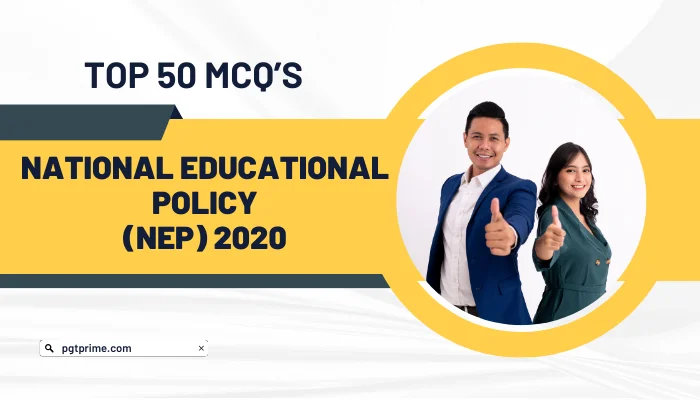




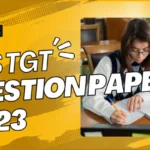
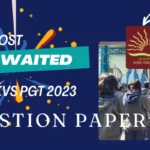
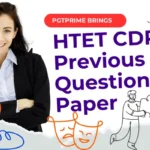
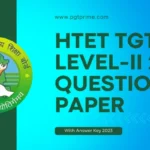

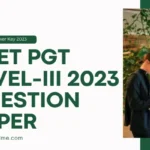

Very nice information..
🙏👍
Very Useful for trb exam👍
Absolutely brilliant set of question
Very nice information,👍👍
Truly indebted for this quiz
Highly useful
question 11 qnd 24 answers are wrong . plz rectify